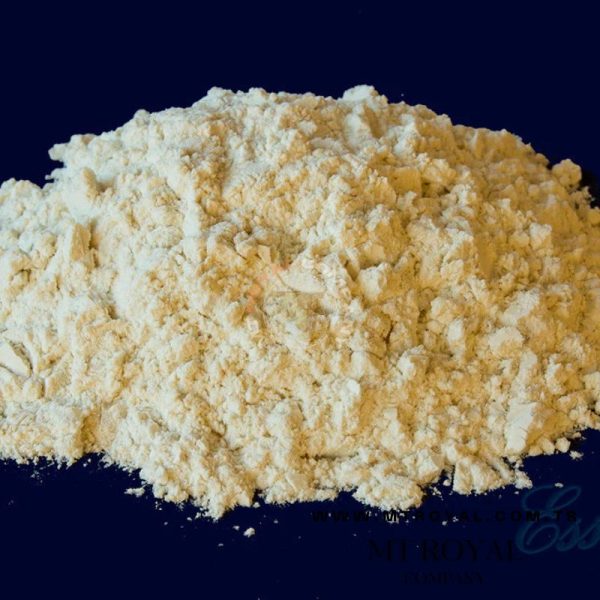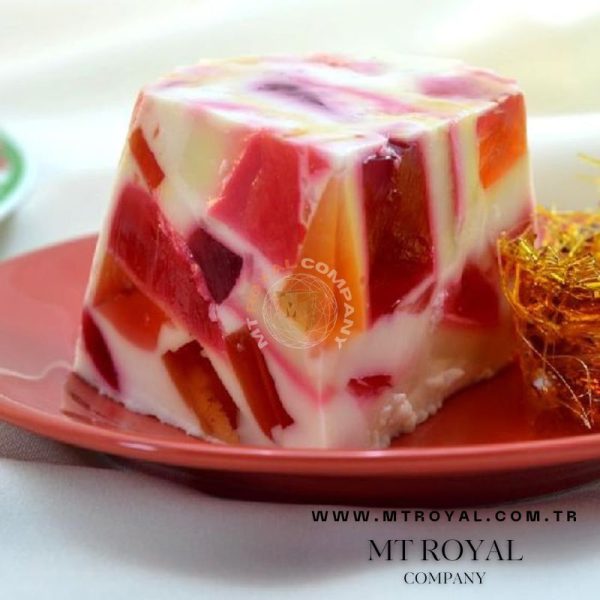What is Vitamin A?
Vitamin A is a group of fat-soluble compounds that are crucial for maintaining normal vision, immune function, reproduction, and cellular communication. It is available in two main forms:
- Retinoids (Retinol): Found in animal products such as liver, fish oils, and dairy products.
- Carotenoids (Beta-carotene): Found in plant-based foods such as carrots, spinach, and sweet potatoes.
The body converts beta-carotene into retinol, which is the active form of Vitamin A. Because Vitamin A is fat-soluble, it is stored in the liver and used as needed. Deficiency in Vitamin A can lead to serious health problems, including vision impairment and increased susceptibility to infections.
Chemical Properties of Vitamin A
- Chemical formula: C20H30O (for retinol)
- Molecular weight: 286.45 g/mol
- Appearance: Pale yellow crystalline powder
- Solubility: Soluble in fats and oils, insoluble in water
- Taste: Tasteless or slightly bitter
- Stability: Sensitive to light and oxygen, requiring proper storage conditions to maintain potency
Analysis of Vitamin A
Vitamin A is one of the most researched and widely used vitamins in both the health and food industries. Its critical role in maintaining optimal health and its widespread deficiency in many parts of the world have led to the fortification of foods with Vitamin A. The food industry utilizes both retinol and beta-carotene in food products, depending on the intended application. Additionally, Vitamin A is an important ingredient in dietary supplements, infant formulas, and fortified foods aimed at enhancing nutritional intake.
Key Characteristics of Vitamin A
- Essential for vision: Vitamin A is necessary for the formation of rhodopsin, a pigment found in the retina that helps the eyes adapt to low-light conditions.
- Immune system support: It enhances the function of immune cells, improving the body’s ability to fight off infections.
- Cell growth and differentiation: Vitamin A plays a critical role in cellular growth, especially for skin cells and mucous membranes.
- Fat-soluble: Stored in the liver and released into the bloodstream as needed, making it important for consistent intake over time.
- Sensitive to oxidation: Needs to be properly stored to maintain potency and prevent degradation due to exposure to light and air.
Uses of Vitamin A in the Food Industry
Vitamin A is a valuable ingredient in the food industry, where it is added to food products and dietary supplements to improve nutritional content and prevent deficiency in consumers. Its role in promoting healthy vision, boosting immunity, and supporting overall health makes it an important additive in various food applications. Below are the primary uses of Vitamin A in the food industry:
1. Fortified Foods
One of the largest applications of Vitamin A in the food industry is in fortified foods. Governments and health organizations around the world recommend fortification of staple foods with Vitamin A to combat malnutrition and prevent deficiencies, especially in populations where access to diverse diets is limited.
Key examples of fortified foods include:
- Dairy products: Vitamin A is commonly added to milk, butter, and margarine to replace the nutrients lost during the fat removal process in low-fat or skimmed dairy products.
- Cereal grains: Fortified cereals and grain products such as rice, wheat flour, and cornmeal are often enriched with Vitamin A to provide an additional source of the nutrient.
- Cooking oils: In some countries, vegetable oils are fortified with Vitamin A to improve its intake in low-resource settings where animal products may be scarce.
2. Dietary Supplements
Vitamin A is a key ingredient in many multivitamin and standalone dietary supplements. Supplements containing Vitamin A are popular among individuals looking to boost their intake of this essential nutrient, particularly for maintaining good vision, skin health, and immune function.
Examples of uses in dietary supplements include:
- Multivitamins: Most multivitamin products include Vitamin A as a core component, providing a balanced intake of essential vitamins and minerals.
- Eye health supplements: Specialized supplements focused on promoting vision health often contain high levels of Vitamin A to support eye function and prevent age-related degeneration.
- Skin and beauty supplements: Vitamin A is included in supplements aimed at promoting healthy skin, as it plays a key role in skin regeneration and repair.
3. Infant Formula
Vitamin A is an essential ingredient in infant formula, ensuring that babies receive adequate nutrition during the critical early stages of development. Because Vitamin A plays a role in vision, immune function, and cellular growth, it is a necessary component of any well-balanced infant formula.
Examples of uses in infant formula include:
- Standard infant formula: Fortified with Vitamin A to mimic the nutritional content of breast milk and support healthy growth in infants.
- Specialized infant formulas: Formulas designed for premature or low-birth-weight infants often contain higher levels of Vitamin A to support their increased nutritional needs.
4. Beverages
Vitamin A is commonly added to functional beverages, such as fortified juices, meal replacement shakes, and wellness drinks. Its fat-soluble nature means that it can be included in oil-based or emulsified beverages without compromising the stability of the product.
Examples of beverage applications include:
- Fortified juices: Certain fruit juices, especially those marketed as “super juices,” contain added Vitamin A to improve their nutritional profile.
- Meal replacement shakes: Nutritional shakes often include Vitamin A as part of a well-rounded meal replacement, supporting balanced health for individuals on the go.
- Energy drinks: Some energy and wellness drinks include Vitamin A to support immune function and overall vitality.
5. Baked Goods and Confectionery
While less common, Vitamin A can be added to certain baked goods and confectionery products to enhance their nutritional value. This is especially relevant for products aimed at health-conscious consumers, where manufacturers want to offer functional benefits without compromising flavor or texture.
Examples of applications in baked goods and confectionery include:
- Fortified bread: Certain fortified breads and rolls contain added Vitamin A to increase their nutritional content.
- Cookies and bars: Health-oriented snack bars and cookies may include Vitamin A to offer additional functional benefits.
- Chocolate and candy: Certain confectionery products marketed as functional or fortified foods may include Vitamin A to promote overall health.
Why Choose MT Royal for Vitamin A?
MT Royal Company is the largest and most reliable supplier of Vitamin A, offering high-quality products, competitive pricing, and exceptional customer service. Below are several reasons why businesses worldwide choose MT Royal for their Vitamin A needs:
1. Supply in High Volumes
MT Royal has the capacity to supply Vitamin A in large quantities, ensuring that food manufacturers and producers have a consistent and reliable source for their production needs. Whether your company requires bulk shipments or regular deliveries, MT Royal can meet your volume requirements efficiently.
2. Very Reasonable Prices
MT Royal offers very reasonable prices for Vitamin A, allowing food manufacturers to optimize their production costs without compromising on quality. The company’s strong industry relationships and efficient supply chain management allow it to provide premium products at competitive rates.
3. Fast Delivery
With a well-established logistics network, MT Royal guarantees fast delivery of Vitamin A to customers worldwide. The company understands the importance of timely deliveries to prevent production delays and ensure smooth operations, ensuring that your supply chain remains efficient.
4. Complete Documentation
MT Royal provides complete documentation with every shipment, including health certificates and export certificates, ensuring compliance with international safety and regulatory standards. This gives customers confidence in the quality and safety of the Vitamin A they receive.
5. Various Payment Options
MT Royal offers various payment options to accommodate the financial needs of different clients. Whether you prefer wire transfers, letters of credit, or other payment methods, MT Royal ensures a smooth and flexible purchasing experience tailored to your business’s requirements.
6. Delivery to Customer Requested Customs
MT Royal provides worldwide delivery to the customer’s requested customs location, ensuring that your Vitamin A shipments arrive exactly where and when you need them. This flexibility and global reach make MT Royal the ideal partner for businesses operating in multiple regions and markets.
Conclusion
MT Royal Company is the largest and most trusted supplier of Vitamin A, offering high-quality products, competitive pricing, and exceptional service. Whether you are in the food, supplement, or beverage industry, MT Royal has the capacity and expertise to meet your Vitamin A needs. With fast delivery, complete documentation, and flexible payment options, MT Royal is the reliable partner you can trust for all your sourcing requirements.
Contact MT Royal today to learn more about how their Vitamin A solutions can benefit your business and ensure the quality and consistency of your products.
Food industry raw materials – list of products






Reviews
There are no reviews yet.